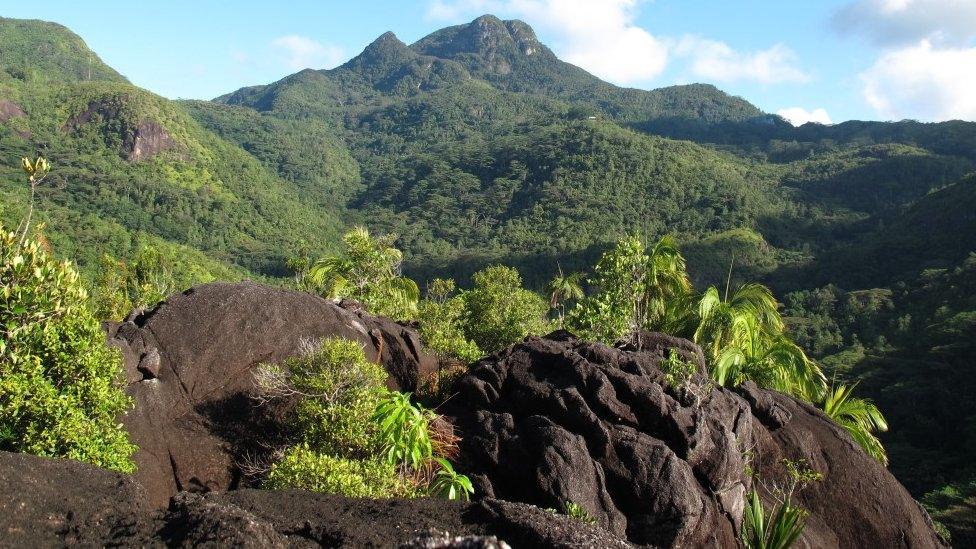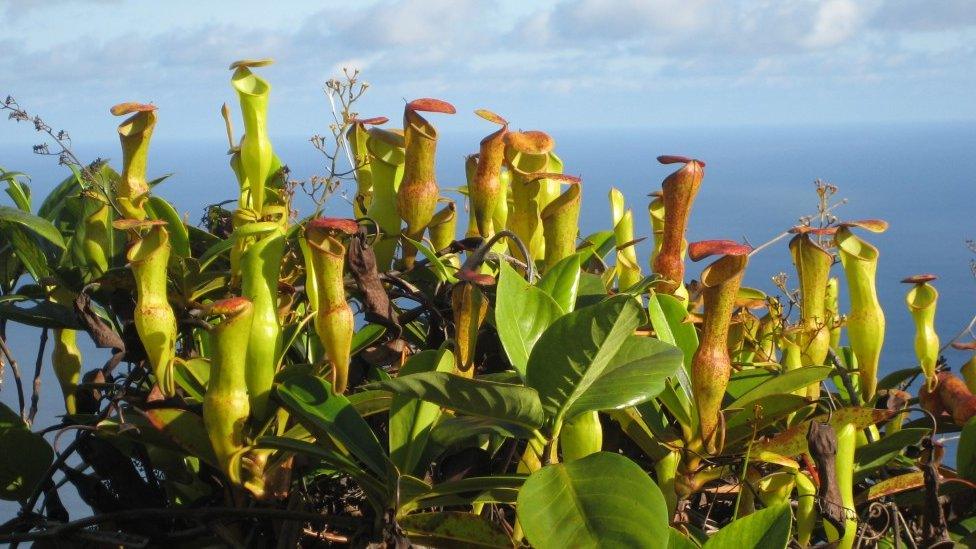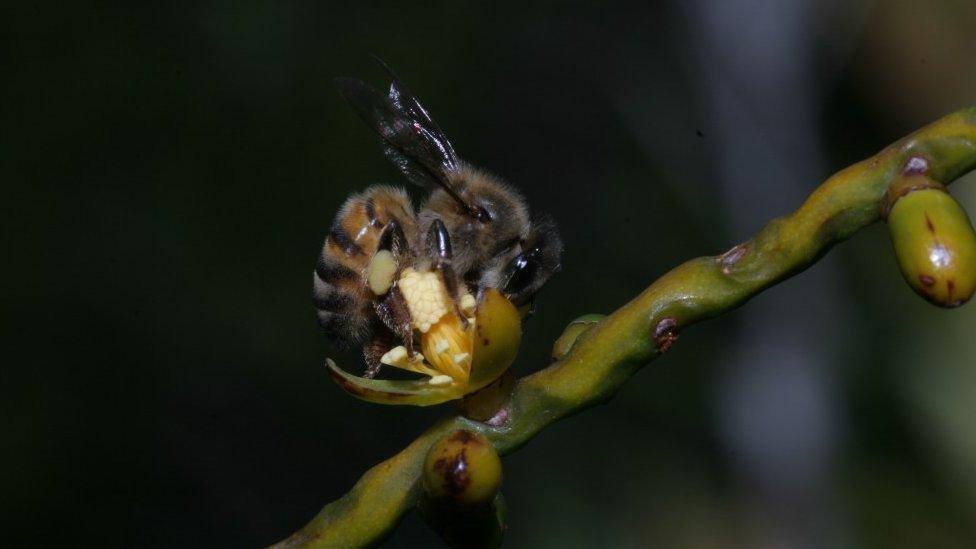Restoring native plants 'boosts pollination'
- Published

Mahé is the largest island in the Seychelles archipelago
Removing invasive exotic plants from natural areas can act as a boost for wildlife, a study suggests.
Bees, butterflies and birds returned to remote mountaintops in the Seychelles only six months after exotic plants were removed.
Taking out exotic plants seems to make native plants more accessible to pollinators, say scientists.
Plants have been moved around the world for centuries, meaning native and exotic plants often grow side-by-side.
There has been debate over the loss of plant biodiversity in some parts of the world, as "alien" plants invade ecosystems.
The study was carried out on the tropical island of Mahé in the Seychelles, an island archipelago in the Indian Ocean off East Africa.

The pitcher plant is adapted to mountain life

Honey bee collecting pollen from a flower
International researchers monitored pollinators at eight isolated areas on the top of mountains.
Four of them had all exotic shrubs (about 40,000 woody plants) removed, while the others remained unchanged.
Over an eight-month monitoring period, the removal of exotic plants appeared to improve pollination.
In restored sites, plants produced more flowers and attracted more visits from pollinating animals, which was linked with the production of more fruit.
Meanwhile, the number of pollinator species (including bees, wasps, flies, butterflies, moths, beetles, birds and lizards) was higher in the cleared areas six to 14 months after exotic species had been removed.
"Ecosystem restoration resulted in a marked increase in pollinator species, visits to flowers and interaction diversity," said a team led by Christopher Kaiser-Bunbury of TU Darmstadt in Germany.
"Our results show that vegetation restoration can improve pollination, suggesting that the degradation of ecosystem functions is at least partially reversible. "
The research is published in the journal Nature, external.
Follow Helen on Twitter., external